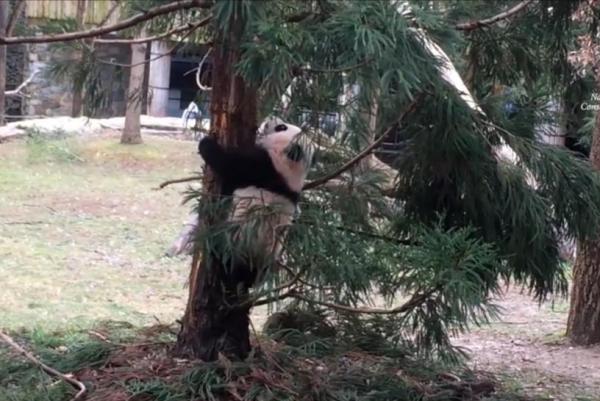Local communities join forces to protect red pandas

Jumla / July 1: Local residents of Jumla have been actively engaged in the conservation efforts for the endangered red panda over the past few years. The local communities in three rural villages of Jumla have taken the initiative to safeguard these endangered species.
The villages involved in red panda conservation are Bishtawada in Sinja Rural Municipality-2, Tatopani Rural Municipality-4, Gidi Khola and Muchhali Budhwada and Patarasi in Patmara Village of Rural Municipality-7.
Red pandas, which are rare globally, inhabit the forests of Himalayan Silver Birch i.e. Bhojpatra, Pines, and rhododendrons in the Himalayan region, at altitudes ranging from 2,200 to 4,800 meters above sea level.
Amrita Khatri, the president of Siyalamul Community Forest Users’ Committee, affirmed that red pandas are frequently spotted around the village. The local residents, including those who graze cattle, sheep, and goats, have been informed and sensitized about their protection.
“The forest serves as the primary stronghold for red panda conservation,” emphasized Bir Bahadur Budha, the Ward Chairman of Patarasi-7. “By safeguarding the forest, we can not only preserve wildlife but also promote tourism, which can contribute to the local economy and reduce threats such as poaching.” Karnali region alone encompasses 43 percent of the red panda habitat. Budha further highlighted the need to prioritize tourism as a means to boost the economy in the region.
Makka Dul Shahi, the chairman of Nadai Community Forest Consumer Committee, shared an incident from last August when a red panda was discovered. He noted that previously red pandas would venture into residential areas but now are only occasionally sighted. The growing population and deforestation have adversely impacted the protection of various wildlife species, including red pandas.
Shahi emphasized the importance of preserving forests alongside red panda conservation since the survival of these wild animals is closely intertwined with the natural resources such as water, land, and plants.
In 2019, the government of Nepal implemented a policy aimed at protecting red pandas through a combination of conservation efforts and tourism. The policy strictly prohibits poaching of any wildlife. Perpetrators involved in red panda poaching can face imprisonment ranging from one to ten years and fines between NPR 100,000 to NPR 500,000, or both. Currently, Nepal is home to only 500 red pandas, with 43 percent of their habitat located in Karnali. The region’s abundance of fallen trees, as well as Himalayan bamboo and Palingo, provides sufficient food for red pandas.
